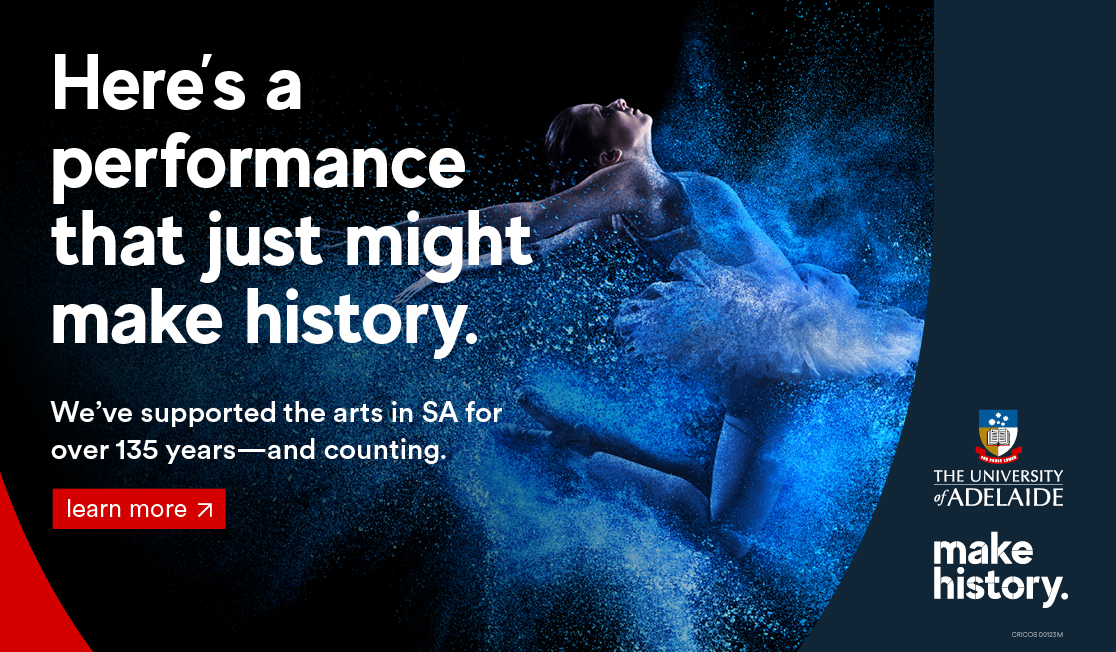Your Digital Program
Info
Your Digital Program content
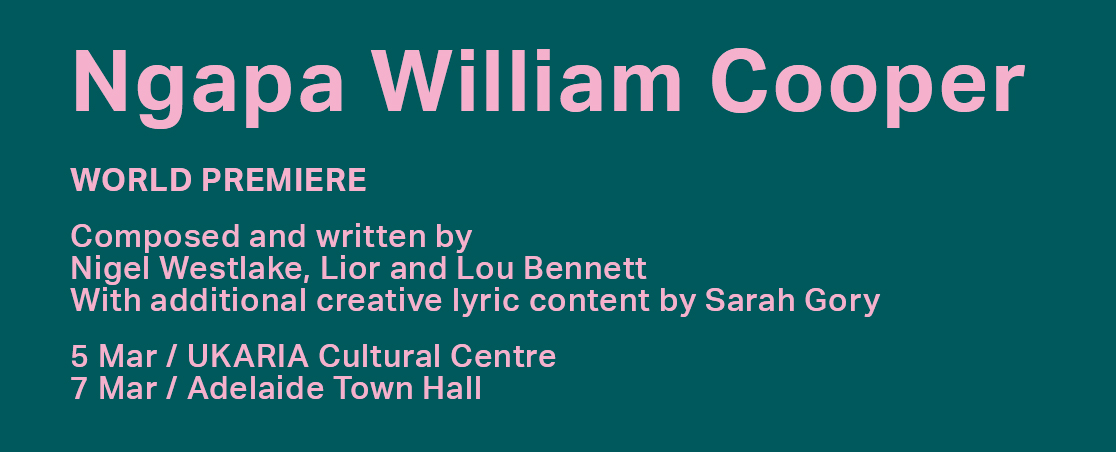
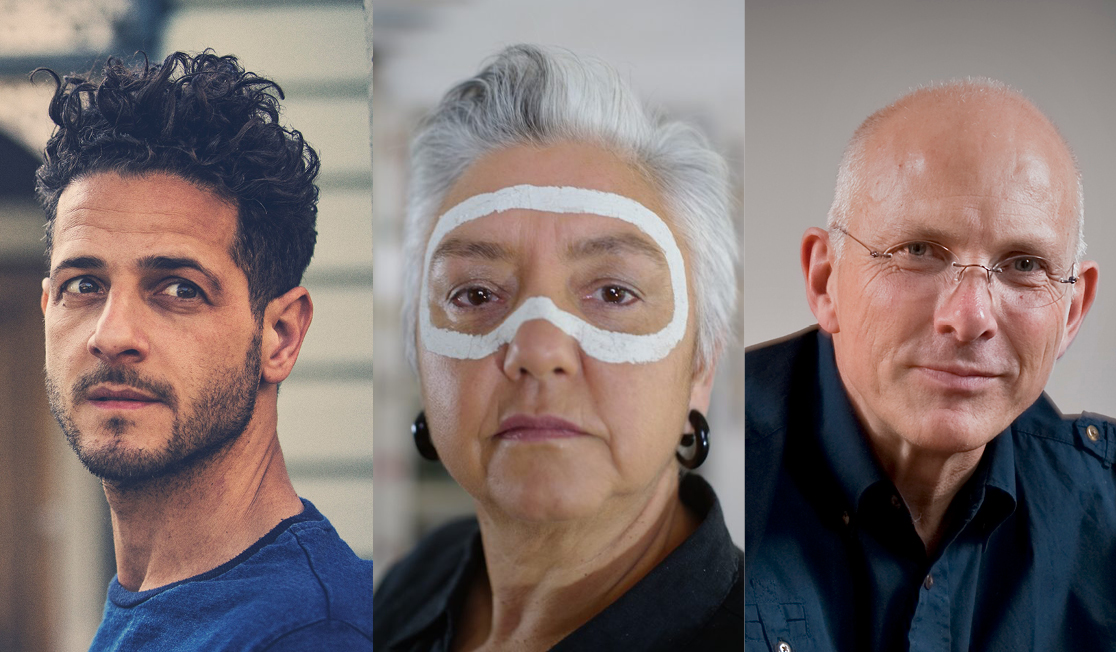
The world premiere production of Ngapa William Cooper is part of Finding Our Voice. Finding Our Voice is supported by Restart Investment to Sustain and Expand (RISE) Fund – an Australian Government initiative, UKARIA and the following individuals and foundations: Ulrike Klein AO, Berg Family Foundation, The Yulgilbar Foundation, The Aranday Foundation, Playking Foundation and Julie Kantor AO.



Please note: ABC Classic will be recording Ngapa William Cooper at Adelaide Town Hall on Tue 7 Mar, 7.30pm, for delayed broadcast. Please ensure you arrive on time.

Share your AF experience
@adelaidefestival (Facebook and Instagram)
@adelaidefest (Twitter)
#AdlFest #AdelaideFestival
Program & Artists
Program
Bryce Dessner
Aheym (Homeward)
Phillip Glass
String Quartet No. 3 “Mishima”
1957 – Award Montage
November 25 – Ichigaya
1934 – Grandmother and Kimitake
1962 – Body Building
Blood Oath
Mishima / Closing
Artists
Australian String Quartet
Dale Barltrop, violin
Francesca Hiew, violin
Christopher Cartlidge, viola
Michael Dahlenburg, cello
interval
program
Westlake/Lior/Bennett
Ngapa William Cooper
(Grandfather William Cooper)
Exile/Call to Ancestors
The News
The Silence
Yakapna (Family)
The Meeting
The Protest
At the End of My Days
Artists
Lior, vocals
Dr Lou Bennett AM, vocals
Australian String Quartet
Andrea Lam, piano
Rebecca Lagos, percussion
Kees Boersma, double bass
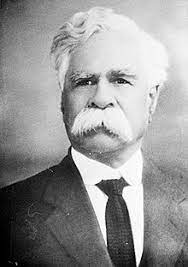
William Cooper
Program Note: Dessner & Glass
By Michael Dahlenburg, Australian String Quartet
We really are delighted to help shape the arc of this concert, and it has been a great joy finding the right two works to complement the themes and trajectory of the evening that culminate in the new commission Ngapa William Cooper.
In both of the selected works, ideas of home and identity abound. Bryce Dessner is a composer we’re very familiar with, having co-commissioned and performed his score to Impermanence at the 2021 Adelaide Festival and across the country with Sydney Dance Company - our recording of the score won a major international award. Aheym, which we will perform here, is the Yiddish word for 'homeward' and is a musical evocation meditating on the idea of flight and passage.
Philip Glass is one of the great composers of our time and his third string quartet, Mishima, is music derived from the film of the same name which depicts the final day in the life of famous Japanese writer Yukio Mishima—he always envisioned it as a standalone work that inhabits the concert stage with as much sonic gravity as the film.
We felt pairing these two works with Nigel, Lior and Lou’s new work would give rise and appropriate place for Ngapa William Cooper in the second half, which we cannot wait to perform.
About Ngapa William Cooper
By Sarah Gory
Ngapa William Cooper is the culmination of years of thinking, writing and creating, alone and together. The pandemic and subsequent lockdowns slowed the process of creation, which turned out to be a blessing in disguise. It allowed ideas to percolate slowly and the collaborative elements to come together organically. Lyrically and musically, Ngapa William Cooper is textural and layered — a reflection of the story that it weaves. Thematically, Ngapa William Cooper is a continuation of Lior and Nigel’s acclaimed Compassion collaboration and yet at the same time it stands on its own, greater than the sum of its parts.
Above all, Ngapa William Cooper is a testament to Yorta Yorta activist Uncle William Cooper, and the importance of continuing his legacy of resistance, solidarity and empathy.
While the histories of Indigenous Australians and Jews are divergent and unique, they share common elements. Both peoples have been subject to genocide, displaced from their lands, marginalised and persecuted. Both have also shown great resistance, proudly continuing their culture through stories, learning, song and family, often in the face of great odds. Ngapa William Cooper is a reminder that our voices raised together are powerful instruments, in more ways than one.
Kristallnacht
On the night of 9 November 1938, civilians and Nazi authorities ransacked and destroyed Jewish homes, shops and synagogues across Germany and Austria. This series of coordinated pogroms became known as Kristallnacht - ‘Night of Broken Glass’ — named so for the shattered windows that littered the streets the next morning. Kristallnacht marked the escalation of anti-Jewish violence in Nazi Germany, and the beginning of the end for European Jewry and Yiddishkeit culture as it once was. Almost one hundred Jews were murdered that night, and some thirty thousand Jewish men were rounded up and sent to the now infamous concentration camps of Eastern Europe. Their families would soon follow them, on and on until the cities and towns were emptied of Jews and the skies choked with the smoke of their collective funeral pyre.
Kristallnacht made front page news around the world.
The Silence
Two days after the events of Kristallnacht, on 11 November 1938 (also known as Remembrance Day in Australia, for Australian soldiers who have died in combat), William Cooper opened the newspaper in his Footscray home, perhaps hoping to remember his son. Private Daniel Cooper was killed in Belgium during World War I, fighting for a country and commonwealth that continued to deny him the most basic of human rights, citizenship.
Instead, what William Cooper found were accounts of the violence in the streets of Berlin and Vienna, stories of Jews being rounded up and taken away. What he saw in the days and weeks that followed was the world turning its back on the Jewish people. Barely a week after Kristallnacht, glass shards still caught in cracks on the sidewalk, an editorial in Melbourne newspaper The Argus read: ‘What will become of the wandering Jews? Nobody wants them […] It is in reality not a problem for Australia, but for Europe.’
The Protest
In the face of this silence, a group of Aboriginal men and women known as the Australian Aborigines’ League convened a meeting on Kulin Nation Country. During this meeting, a resolution was passed condemning the actions of the Nazi Government and protesting the treatment of the Jews in Nazi Germany. On 6 December 1938, less than one month after Kristallnacht, the Australian Aborigines’ League — led by their secretary, William Cooper — dressed in their Sunday best, marched from Cooper’s home in Footscray across the Maribyrnong River to the Nazi German Consulate in the heart of Melbourne city to deliver a formal petition condemning the persecution of Germany’s Jews and calling for it to end.
In 1938, Aboriginal people across Australia continued to be persecuted and dispossessed, denied citizenship and basic human rights on their own land. Yet, in the face of all odds, the members of the Australian Aborigines’ League refused to stay silent, raising their voices in solidarity with a group of people distant in culture and geography: ‘We are a very small minority, and we are a poor people, but in extending our sympathy to the Jewish people we assure them of our support in every way.’
William Cooper and his comrades were denied entry by the Nazi German consul, who refused to receive their petition.
Uncle William Cooper
William Cooper was a Yorta Yorta activist, political campaigner and one of the most important figures in twentieth century Australian history. Born in 1861 at the heart of his Country, upstream from the junction of the Murray and Goulburn Rivers, Cooper spent his early years at Maloga Mission and Cummeragunja Reserve, where he learned to read and write — and where he would first encounter the struggle for Aboriginal rights.
In 1933, Cooper moved to Melbourne, where he could continue to fight for his people. It was there that he drew up his now-famous petition to King George V. His demand for Aboriginal representation in parliament, in the form of a federal MP chosen for and by Aboriginal people, echoes through history in the Uluru Statement from the Heart’s current-day call for a ‘voice to parliament’. Cooper also founded the Australian Aborigine’s League during his Melbourne years, which in its current guise as the Aboriginal Advancement League is Australia’s oldest still-operating Aboriginal rights organisation. The League was instrumental in promoting the first Day of Mourning on 26 January 1938, an event that evolved into what we know today as NAIDOC week — and whose legacy remains well and truly alive in the ‘Change the Date’ campaign.
Throughout his life, William Cooper wielded ‘the spear of the pen’ to great effect and impact. In his many letters and petitions, written to politicians and representatives of the crown, we hear a voice ahead of its time. Cooper called for equal rights for Aboriginal people while asserting the uniqueness of their culture and claim to land. He fought stridently for all Aboriginal people to be free of persecution and despite this never being realised in his lifetime, in his final years he still saw fit to stand in solidarity with the Jewish people across the seas.
Cooper’s legacy of determined struggle and enormous empathy remains as pertinent today as ever.
The News
I opened up the newspaper
Twenty years to the day
The war had ended
The war that took my son away
Twenty long years since he laid his life down
Now he is buried under northern stars
Whose stories I do not know
He had no land
And he had no rights
From a nation who made no distinction
Who it sent off to fight
But there was no mention of my Daniel anywhere
And in my sorrow
In the depth of my despair
Something strange yet familiar
Struck me and took hold of me
A wave of darkness
Gathering from across the sea
And I read
The night of broken glass
Bodies crouched in terror
Streets of blood and crystal shards
And I read
Skulls smashed
Synagogues burned to the ground
They say flames were still shooting into the sky at dawn
It does not matter you have done no wrong
It only matters to whom you were born
And I knew there was only one way the blade could fall
For I see it happen to my people
The Silence
I return to the news every day
A silence I’ve learned all too well
Silence
I traded places
With a young man bleeding
On the streets of broken glass
And though he was half a world away
I could see him in my reflection
Clear as day
And I knew I was a ghost if I let him fade away
I return to the news every day
A silence I’ve learned all too well
It grows
If all backs are turned
If all eyes look away
There will be no way to know we are sinking
There will be no way to know we are gone
Yakapna (Family)
For my family
I speak so we can live freely
So we can speak our language
Perform our ceremony
For my family
I work so they can rest upon the land
So they never have to hold guns in hand
To meet another man’s demands
My strength is my gentleness
Love will quell hate
My strength is my resilience
Do not harden your heart
The Meeting
My dear friends
Thank you for joining me today
A heavy shadow has befallen me
Brothers and sisters
It has come to my attention
Of the gravest persecution
Taking its place in the heart of Europe
“Like the Jewish people
Our people have suffered much cruelty, exploitation and misunderstanding as a minority at the hands of another people. We are a small minority and we are a poor people, but we must assure them of our support in every way.”
“The Nazi government has a consulate here on our land
Let us go there and make our protest known
Our pen is our spear
Let us have the courage to use it
For resistance is the refusal to yield to silence.”
Can you believe
That there are those who say
That there is nothing left to do
But smooth the pillow of a dying race
About the first people
So we will be the first to speak up
We will be the last to be silent
The Protest
Our words are sacred
Our words are strong
They will outlive us when we are gone
Dressed in their Sunday best
Underneath the scorching southern sun
From the Maribyrnong to the Yarra they marched
From the banks of the river
To the heart of the city
Marching down the boulevards
Straight into the smoke
People’s gaze bearing down
William’s aging frame
Heavy with justice on his back
Letter in hand
To these faceless arches of power
Towering above those unwelcome
Those unwanted
“On behalf of the Aboriginal inhabitants of Australia, we wish to have it registered and on record that we protest wholeheartedly at the cruel persecution of the Jewish people by the Nazi government in Germany. We implore that you would make it known to your government and its military leaders that this cruel persecution of their fellow citizens must be brought to an end.”
Our words are sacred
Our words are strong
They will outlive us when we are gone
It does not matter what message you bring
It only matters to whom you were born
Dark is the heart that closes its doors
At the end of my days
At the end of my days
I want to know I spoke up when I saw wrong
At the end of my days
There’ll be no doubt I stood up for what was right
And that courage led the way
To the end of my days
At the end of my days
My conscience will have been my guide
To see the world through different eyes
I will have crossed the divide
Like a river red gum tree
My roots will hold me up in shifting sands
And point me towards the sun
Though some will try and break me
And ignorance may try to erase me
They will not weaken my resolve
For my bearings are true and strong
At the end of my days
I want to know I spoke up when I saw wrong
At the end of my days
There’ll be no doubt I stood up for what was right
I will be proud of my name
At the end of my days
Program Note: Ngapa William Cooper
By Dr Lou Bennett AM
Yorta Yorta is the name of the language of the Yorta Yorta Nation including 10 tribes. My tribe is Walithica, which means we are the people from the meeting of the three rivers: dungala (Murray), gaiyla, (Goulburn) and yakoa (Campaspe). The town name Echuca derives from our Tribe's name. Uncle William Cooper was my Grannie Ada’s brother. Their mother, my Nanny Kitty, has been found in numerous historical documents sharing our language. Now, as her great, great, great granddaughter, it is with great honour I share some Yorta Yorta with you.
In each section, you will hear Yorta Yorta. I have used the language sparingly and my translations here will be based in story and poetic form as direct translations become misleading and taken out of context. The creative practice of call and response between Yorta Yorta and English has been used to further another level of understanding.
Like many First Nations languages, the words can be multiple in meaning. When the Europeans wrote our languages in lexicons and word lists, there was a disruption to this multiple value, often rendering our languages to one meaning. Using the language artistically gives the opportunity to place multiple meanings back into the language.
A special acknowledgement to Yorta Yorta Elder, damangalyna (Dr Wayne Atkinson) for his cultural knowledge and for narrating Uncle William’s letters.
Exile/Call to Ancestors
Calling the Ancestors into our space before a gathering or ceremony is an old tradition and one shared by many. Here I share with Lior a prayer to dhama yenbena (Old people), dhama mulana (Old spirit) and garra (now).
The News
The term dhoma is used in multiple ways from dearest love to feeling sorry for someone who is less fortunate. I use it as a term for a loved one, Uncle William and Aunty Agnes’ son Daniel.
Wanhal nyinyi guwiga?
Where is my son?
Wanhal nyinyi guwiga?
Where is my son?
Dhoma nyinyi yalka, dhoma nyinyi yalka
My dear child, my dear child
Dhoma nyinyi yalka, dhoma nyinyi yalka
My dear child, my dear child
The Silence
The term ganbina is also multiple in meaning. It could mean get up, rise, grow, even fly. It’s vital that our languages are not taken as literally as the English language.
Gukul gukul
Silence, silence
Gukul
silence
Ganbina…
Rise...
Gakana…
Comes...
Ganbina…
Rise...
Gakana…
Comes...
Ganbina-n, gabina-n ganbina-n...
It rises, rises, rises...
Yakapna (Family)
Yakapna (yercupna) means family. I believe Uncle William's strength was his family. We are taught at a very early age that we are all connected, and it takes a strong spirit and heart to remain loving. This is one of the most important teachings of my Old People.
Chorus:
nyinyi dungadja gowola
My big kindness
dhomi gow-it
love overtakes
bida marreda
hatred
nyinyi dungadja gowola
My big kindness
dhomadhoma-nga
I love you
ngalnyan-uk yamutj
goodness
gathana manma mathi ngangwurra
don’t make a bad heart
The Protest
There are times when I sing, I can feel my Ancestors voices surge in me and my voice changes from sweetness to assertion, from young to old.
Lior sings, "Dark is the heart, the heart, that closes its door". I chose to be creative and to find words that I could hear my Old People speaking.
Djimunuk birrama djimunuk birrama
Coward, go away, coward go away
Djimun mathimatj ngangwurra
Cowardly cruel heart
At the End of my Days
We believe that death is not the end; it is a rebirthing, a transitioning of the spirit. We still grieve, we cry for the loss of our loved ones, however, we know in our hearts that life force is eternal.
Ooooh dhama yenbena, dhama yenbena
Oh Ancestor
Ooooh ganbina mulana, ganbina mulana
Fly spirit
Ooooh nyuwanda dama yenbena-ruk danu, danu
We cry, cry for you Ancestor
birra-ma yanyabak dhama yenbena-l muma, birrama birrama garra…
Go away walk with the Old Ones now…
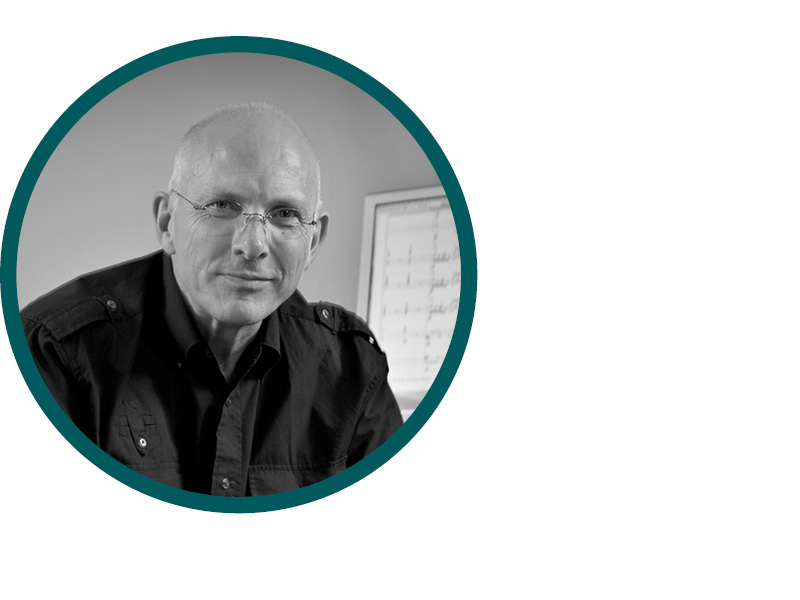
Nigel Westlake
Nigel Westlake’s career, spanning almost 5 decades, began as a clarinettist.
His concert works and movie scores have received many awards including the 2022 APRA Distinguished Services to the Australian Screen, 2 Aria awards, 15 APRA/AGSC awards, the Paul Lowin Orchestral Prize (2x) & the Gold Medal at the New York International Radio Festival.
Nigel holds an honorary Doctorate in Music, awarded by the University of New South Wales in 2012. He has conducted all the major symphony orchestras in Australia & made his US conducting debut in 2016 at the Lincoln Centre with the New York Philharmonic and European debut with the RTE Symphony in Dublin in 2018.
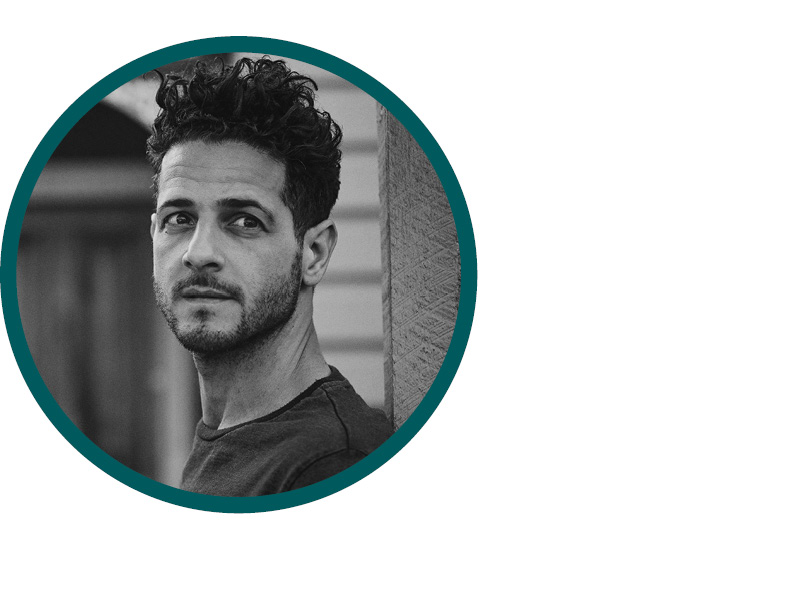
Lior
Lior is one of Australia’s most treasured singer-songwriters renowned for his beautiful voice and songs that radiate truth and sincerity. He burst on to the Australian music scene in 2005 with his debut album, Autumn Flow, and has subsequently released seven albums to date.
He has toured extensively both in Australia and internationally and is a multi-ARIA award-winner as well as the recipient of numerous other awards acknowledging the respect held for him across several arts platforms.
In 2014, Lior collaborated with Nigel Westlake on Compassion, a symphonic song cycle for voice and orchestra based on ancient texts in both Hebrew and Arabic centred around the wisdom of compassion. It has been performed with all major Australian orchestras.
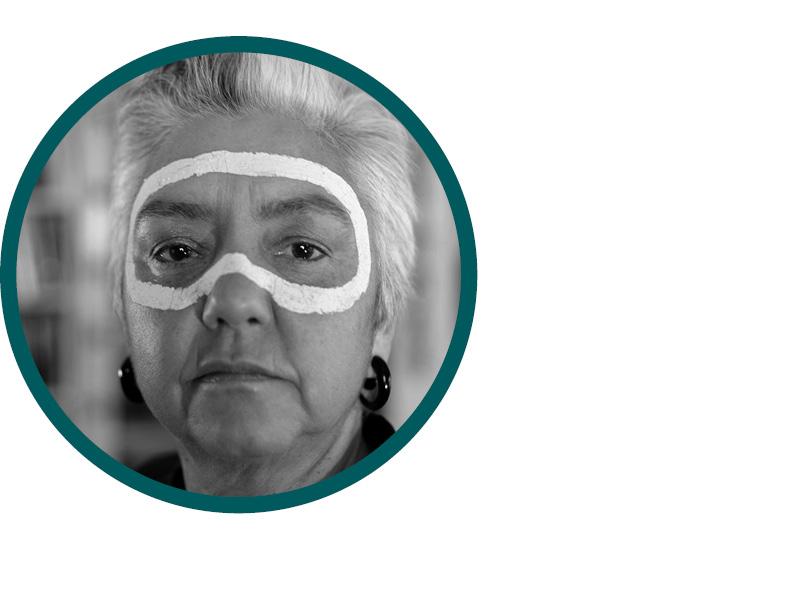
Dr Lou Bennett AM
Yorta Yorta Dja Dja Wurrung, Dr Lou Bennett AM is a former member of the internationally acclaimed trio Tiddas (1990-2000). A prolific songwriter/composer, she penned some of the group’s signature songs. In 2006, she was a co-founder of the iconic Black Arm Band.
Lou's work stretches over a vast area within the arts industry including her various roles as Performer, Songwriter, Musical and Artistic Director, Composer, Actor, Soundscape and Music Designer, Educator and Board member (Chair of the Australia Centre at the University of Melbourne; Board Member for RISING). She completed her PhD by project at RMIT Melbourne in October 2015.
Lou uses her own languages of Yorta Yorta and Dja Dja Wurrung, extending to other Aboriginal and Torres Strait Islander languages that can be retrieved, reclaimed and regenerated through songs, stories and performances.
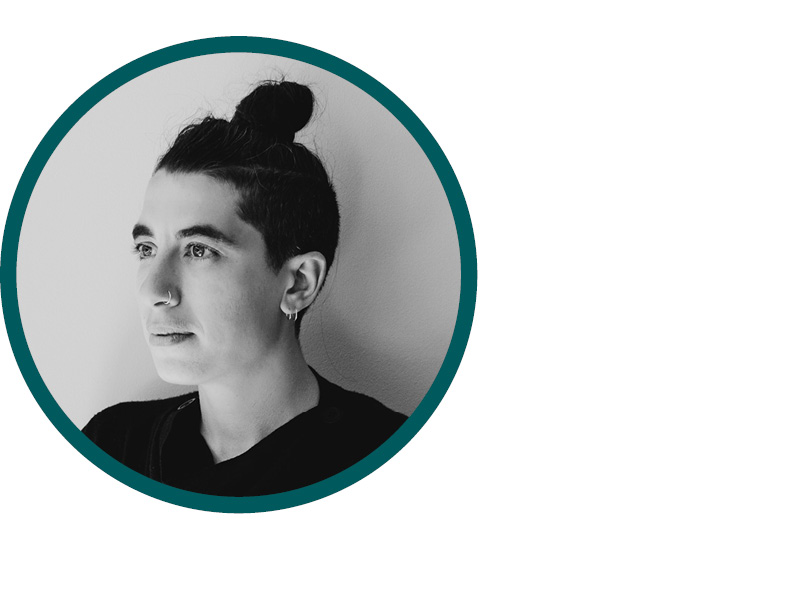
Sarah Gory
Sarah Gory is a writer, editor and scholar. Her award-winning creative non-fiction has been widely published in journals and magazines, as well as in museum catalogues, book chapters and various places online. Sarah teaches writing at Melbourne University and RMIT, and lives on unceded Kulin Nation Country with her family.
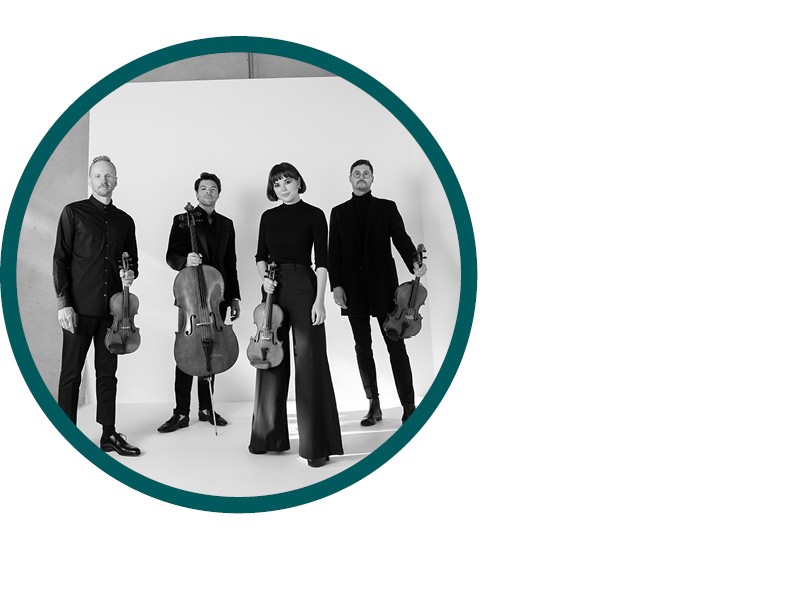
Australian String Quartet
Dale Barltrop, violin
Francesca Hiew, violin
Christopher Cartlidge, viola
Michael Dahlenburg, cello
Since 1985, the Australian String Quartet (ASQ) has created unforgettable experiences for audiences around the world. Dedicated to musical excellence with a distinctly Australian flavour, the ASQ’s purpose is to create chemistry and amplify intimacy through performances that connect people with string quartet music. From its home at the University of Adelaide’s Elder Conservatorium of Music, the ASQ reaches out across Australia and the world to engage people with an outstanding program of performances, digital content, workshops, commissions and education projects.

Andrea Lam
Andrea Lam, an Australian pianist pronounced a “real talent” by the Wall Street Journal, performs as soloist with leading orchestras throughout Australasia, Japan, and North America. Based in New York until 2021, she has performed recitals at Carnegie Hall and Lincoln Center to Sydney Opera House, and toured nationally for Musica Viva Australia. Andrea is also a keen chamber music collaborator, performing and recording for Chelsea Music Festival (New York), with Australian String Quartet, baritone Bo Skovhus, violinist Emily Sun, and the Claremont Trio (USA). Performing a wide range of repertoire, from Bach, Schumann and Chopin to Aaron Jay Kernis, Lilya Ugay and Nigel Westlake, Andrea holds degrees from both the Yale and Manhattan Schools of Music.
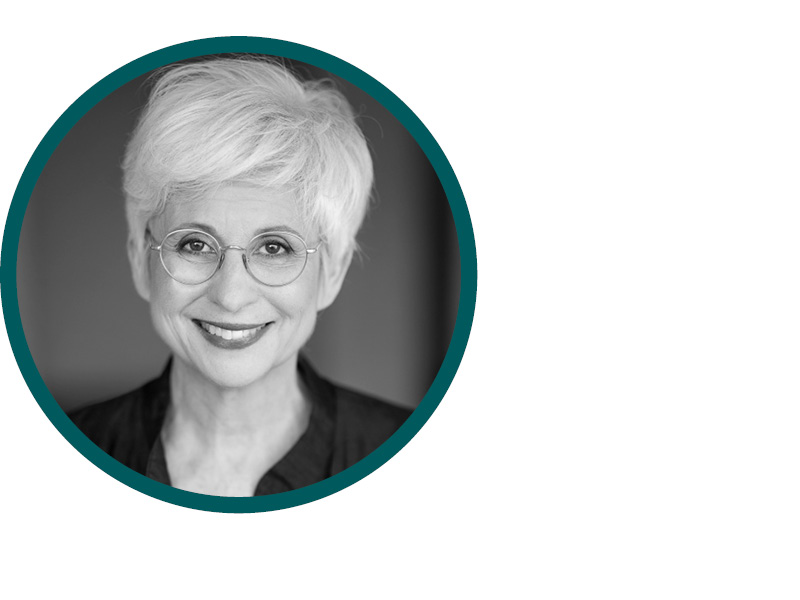
Rebecca Lagos
Rebecca Lagos is Principal Percussionist with the Sydney Symphony Orchestra (SSO) having previously held the positions of Assistant Timpanist/Tutti Percussionist with SSO and Principal Timpanist with the Tasmanian Symphony Orchestra.
She has performed with the Melbourne Symphony Orchestra, West Australian Symphony Orchestra, ACO, Seymour Group, Sydney Alpha Ensemble, The Australia Ensemble and Taikoz. Rebecca was a member of Synergy Percussion from 1987-1999 and has often returned as a guest artist.
In 2006, Rebecca premiered Nigel Westlake’s percussion concerto When the Clock Strikes Me with the SSO and was awarded Best Performance of an Australian Composition at the APRA 2007 Classical Music Awards.
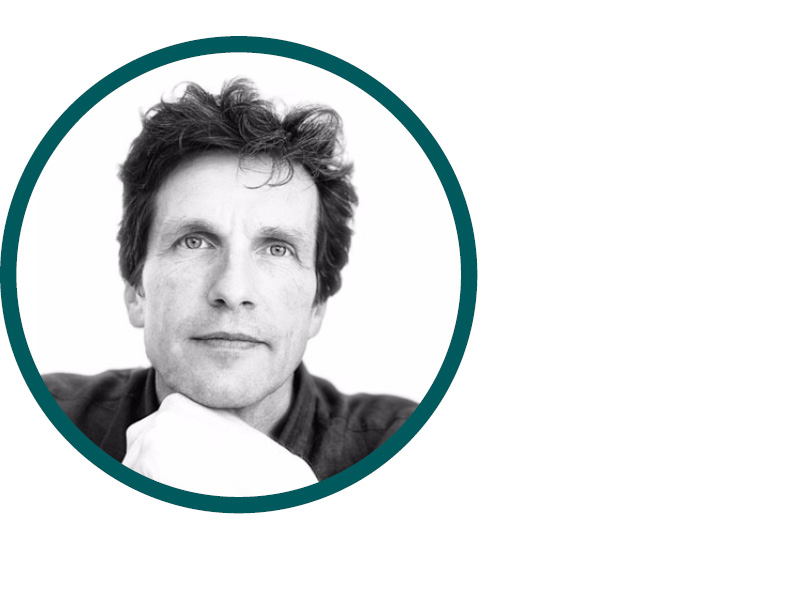
Kees Boersma
Kees Boersma enjoys a multifaceted career as principal double bassist of the Sydney Symphony Orchestra, lecturer in bass at the Sydney Conservatorium of Music, recitalist and avid chamber musician.
Following several seasons of performing with the Royal Concertgebouw Orchestra, Amsterdam, he has premiered with the SSO concertos by Colin Bright (Young Tree Green - A song of the Republic) and Mary Finsterer (Ice Tales No.1), the latter earning an APRA nomination for Best Australian Performance of a New Work. He was also a featured soloist and presenter in the SSO "Playlist" series of concerts.
Kees is a regular performer at Australian music festivals, has been member of the Australian World Orchestra since its inception and has been a guest principal of the Australian Chamber Orchestra, New Zealand Symphony Orchestra and the Hong Kong Philharmonic.
About Finding Our Voice
Australia is rich in brilliant music makers. Finding Our Voice celebrates Australia in sound. It creates a national portrait of our most exciting composers, working in wildly diverse ways. We’re passionate about introducing them, their stories, and their music to you. Listening to them helps us hear, celebrate, and connect with one another, and our country.
Finding Our Voice is a commissioning project. We’ve invited eight living Australian composers to each create a new piece of music. All the composers we approached have chosen to work with a small creative team to realise their ideas — testimony to the collaborative nature that is currently typical of Australian composition. These eight new works are presented in eight iconic venues and festivals around the country, one by one, across a year.
Ngapa William Cooper is the sixth in our series of premieres, all of which are also being filmed and recorded. The digital manifestation of Finding Our Voice creates a treasure trove of footage of the live events, plus educational resources, and interviews, all illuminating the artists’ stories, creative processes, their unique voices, and approaches.
Lou Bennett, Lior and Nigel Westlake are among our most beloved and esteemed composers. We’re honoured to be partnering with Adelaide Festival to present their new work, and rapt to be witnessing the birth of Ngapa William Cooper with you all.







Festival for the Future
Adelaide Festival is proudly Carbon Neutral and you can help us reduce our impact on the environment further! This year, Adelaide Festival has partnered with Reforest and Trees for Life to support the Mannavale farm bushfire recovery project in Adelaide Hills.
Plant one for the planet as part of your Adelaide Festival experience. You can learn more about the project, take action and track your impact here.
Your contribution through Reforest will help repair the damage caused by both bushfires and historical land clearing, and help Trees for Life plant a range of native species to restore an area of forest habitat for native wildlife.
